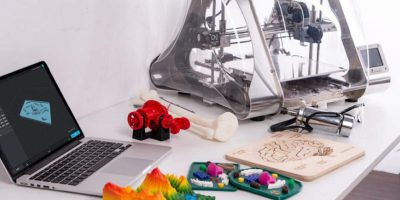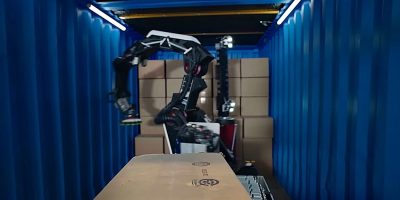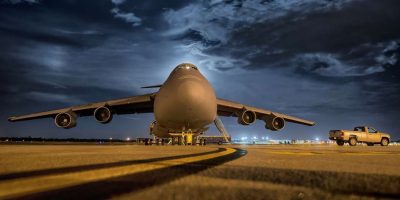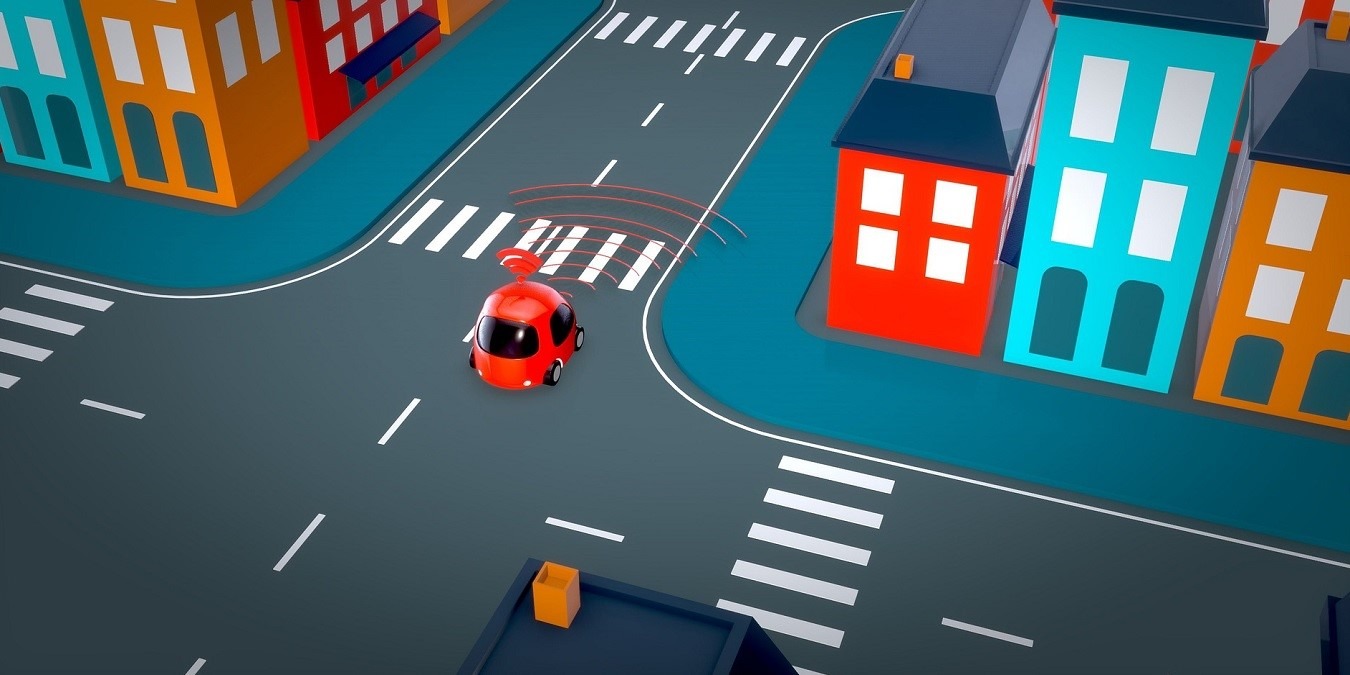
Have you been driven around in an autonomous vehicle (AV)? Maybe not, because they still aren’t very common in most parts of the world. Things are moving very slowly in this space, and it will be a few years more before self-driving passenger cars become widely available. We bring you the top autonomous vehicle companies to watch in 2023. These are the ones most likely to usher in a driverless future.
1. Waymo
Waymo, formerly the “Google self-driving project,” is one of the longest-running autonomous vehicle companies. Few would know its humble origins in Google Maps Street View, which is ubiquitous in every Android device. Starting from a fleet of 100 Toyota Priuses, the Google Street View project has captured streets and highways across many cities in different countries.
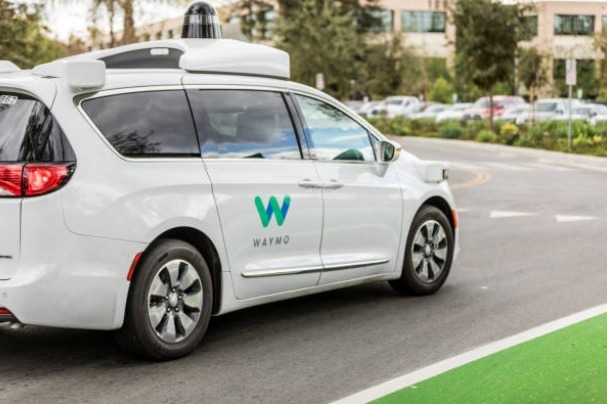
This means Google’s Waymo already has access to the most precise GPS maps that have been created for over a decade, giving it a distinct navigational advantage over other AV companies. That’s why it can afford to have the tagline, “we’re building the world’s most experienced driver.”
Waymo currently has over 1 million test miles on its record, with a fleet or robotaxis in San Francisco, Los Angeles, and a few other US cities.
2. Baidu
Close on the heels of Google, the world’s second-largest search engine company, Baidu, has gone full throttle in the autonomous robotaxi space. It already has a fleet of nighttime driverless taxis under the Apollo Go banner, with a large network in Wuhan, a city of 10 million people. It has also tested itself on the streets of Shenzen, Beijing, Shanghai, and many other cities all over the country.
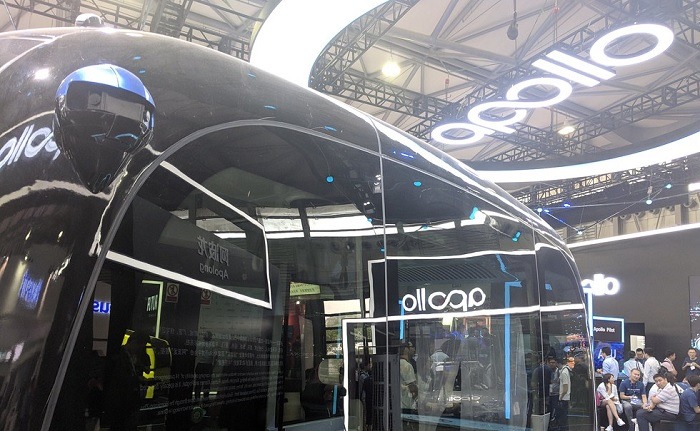
Currently Baidu’s fleet has Level-4 self-driving capabilities which is a very high degree of autonomy. To what extent does Baidu have plans to expand its fleet beyond China remains unclear at the moment.
3. Zoox
Owned by parent company Amazon Inc., Zoox was founded in 2014 and has been known for its unique concept design. This is comprised of unique sensor architecture, which combines electric batteries, cameras, LIDAR and radars, and a 360-degree field of view to see everything in a 150-meter range. The biggest necessity of an autonomous vehicle is its ability to make quick decisions on the road with sound engineering. This it does with teleguidance and computer vision.
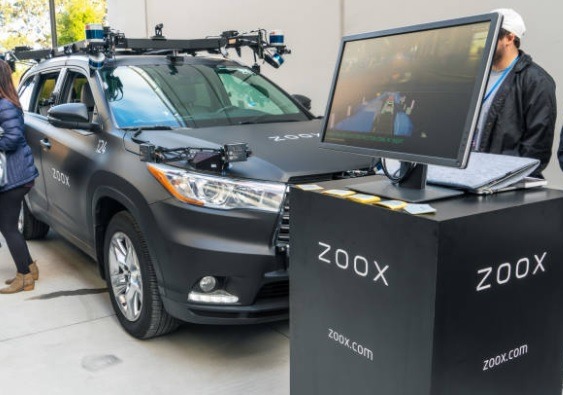
Like the other big AV players, Zoox is focusing heavily on the robotaxi market with a first of its kind employee shuttle service in Foster City, California. It also is expanding its presence in San Francisco, Las Vegas, and a few other US cities.
4. Nuro
When one thinks self-driving, autonomous cars and robotaxis are the first things that come to mind. But then some of these vehicles are needed solely for good local transportation. This is where Nuro is capturing the imagination of e-commerce companies. Handling errands from dinner to dry-cleaning is the stated application of Nuro on its website.
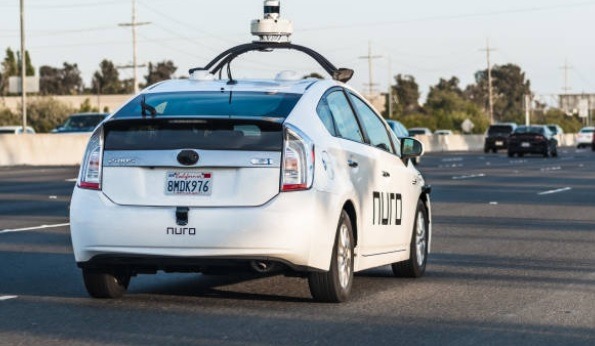
Nuro handles safety issues through lower speeds and a light design which makes it accident-proof (for others.) As soon as a pedestrian comes within one meter of Nuro’s AI robot, it stops immediately. Of course, using machine learning algorithms, it can achieve continuous improvement in street driving.
5. Aurora
Aurora Innovation Inc., is based in Pittsburgh, Pennsylvania. It has developed an automated system called “Aurora Connect” which can be integrated into any vehicle to move passengers. It has a related offering called “Aurora Horizon” to move goods and freight.
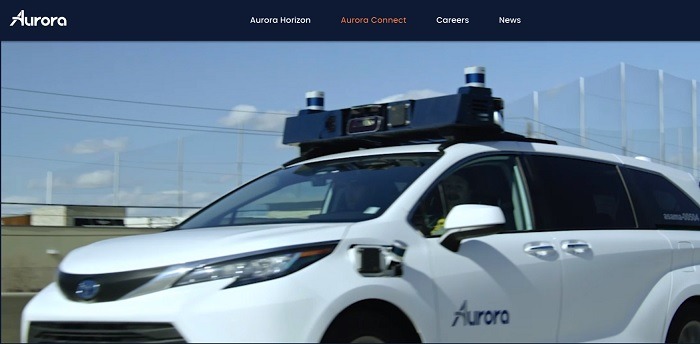
While most of its current offerings are in trial launch in US cities like Pittsburgh, Dallas, and the Bay Area, it might make a huge splash in the robotaxi space as well. Aurora acquired Uber’s autonomous unit in 2020. Aurora is also working on a “driver-as-a-service” model which would enable AV owners to commercialize their offerings through affordable licensing.
6. Tesla
Tesla Autopilot marks the company’s foray into the driverless segment. Elon Musk has frequently claimed that the company plans to launch a “full self-driving” feature in Tesla which would allow cars to park themselves, switch lanes, and identify stop signs and traffic lights. However, these features aren’t considered fully autonomous, and other AV car makers, such as Waymo, have mocked Tesla’s claims of full autonomy.
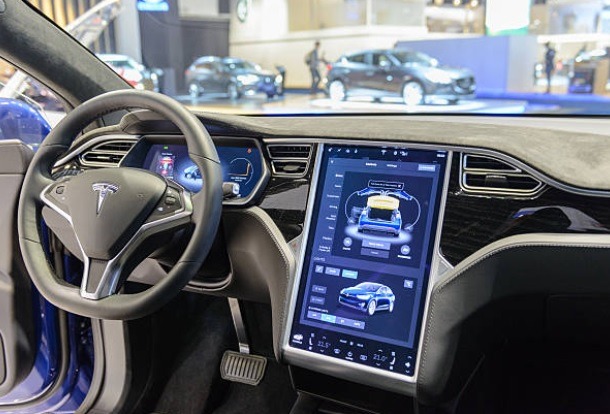
Still considering it is Tesla we’re talking about, some things about this concept are worth noting. For example, eight surround cameras provide 360 degrees of visibility, there is a forward-facing radar, and the vehicle boasts neural net for vision. Since Tesla is one of the pioneers in the AV segment, it can surprise everyone with a radical breakthrough invention.
7. Pony.ai
Another Chinese company, Pony.ai, is backed by Toyota and owns a fleet of robotaxis in US and China. It is a key partner of Baidu and is working on many different areas of self-driving safety. It has multi-vehicle platform offerings right now ranging from small cars to large container trucks.
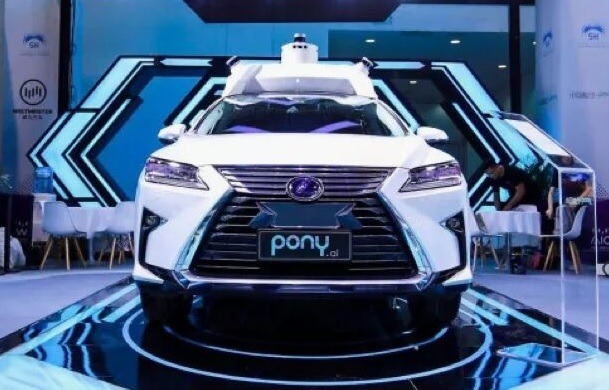
Apart from robotaxis, Pony.ai has begun its operations in unmanned distribution and automated food delivery.
Key technologies include LIDAR, 360-degree field of view with multiple cameras, radar in all directions to avoid impact, and machine learning/deep learning to navigate complicated road scenarios. Considering the company’s fleet is testing in Chinese cities which have busier traffic, the learning is quite huge.
8. RideFlux
South Korea-based RideFlux has one of the world’s most promising full-stack driverless solutions. Its vehicular deployments cover HD maps, AI data, a visible passenger UI, and other self-driving safety features. Since September 2022, RideFlux has been offering free-route autonomous driving services in Jeju Island, and you can watch this detailed video which shows how they have a dedicated connection from the island’s airport to downtown Jeju.
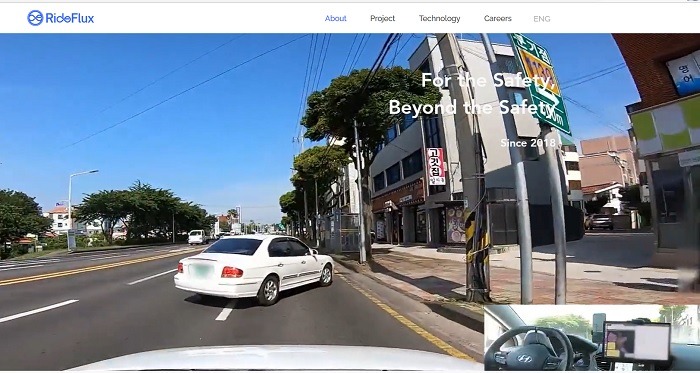
RideFlux has also done on-road testing in Jeju for nighttime driving that too in rainy conditions. Its technology has been backed by South Korean government, and it’s safe to predict that this company would make a mark in the driverless segment.
9. Mobileye
Israel-based Mobileye started out building advanced driver-assistance systems (ADAS) but is currently one of the most experienced AV safety solutions provider. Their best offering is a Responsibility-Sensitive Safety (RSS) Mathematical Model which gives you a minimum following distance so AV would be able to avoid crash if the vehicle in front were to suddenly brake.
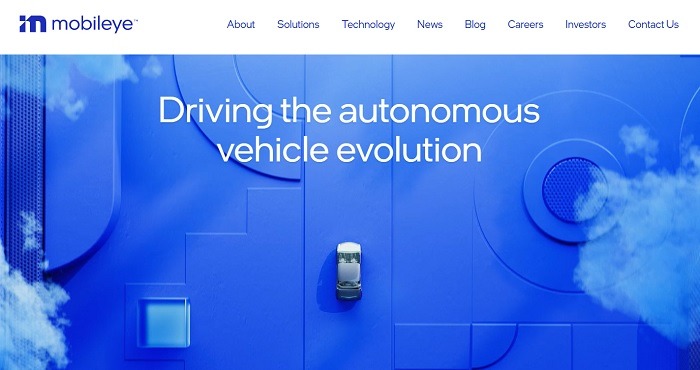
Mobileye’s solution is extremely cutting-edge as it makes allowance for the worst-case scenarios that human drivers present. Its advanced following distance algorithm also enables the AV to have the right of way, preventing it from unnecessarily yielding to other cars. Mobileye has already done extensive tests on the streets of New York, Tokyo, Munich, Jerusalem, and many other cities.
10. Deeproute.ai
Deeproute.ai is a Chinese startup that has committed to launching robotaxis and full-stacked solutions to strengthen its presence in the autonomous vehicles market. The technologies in the stack include Lidar, GNSS, HD Map, perception, planning and control, simulation system and cloud platform. In Feb 2023, it launched a map-free self-driving solution which would facilitate mass production for many automakers.
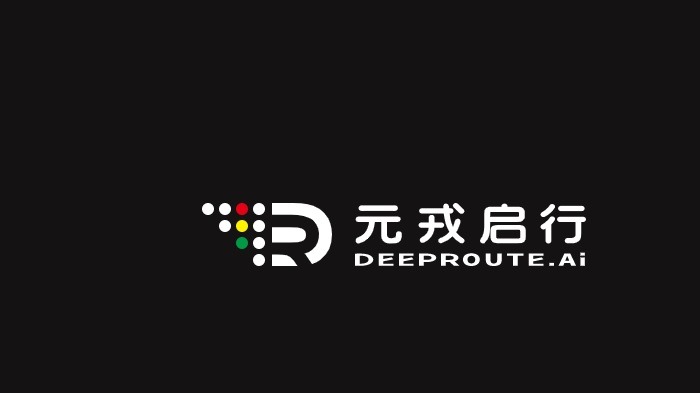
Considering there are so many advanced technologies in one platform, this is one AV offering to keep an eye on.
11. Nauto
Silicon Valley-based Nauto is making waves with its advanced Driver & Fleet Safety Platform which is totally based on AI. It anticipates driver behavior (human driver, that is), avoids collisions, and equips drivers to self-guided coaching. After all, if the self-driving units have to enter the passenger vehicle space, we must learn how to operate them. Nauto is making excellent strides in this.
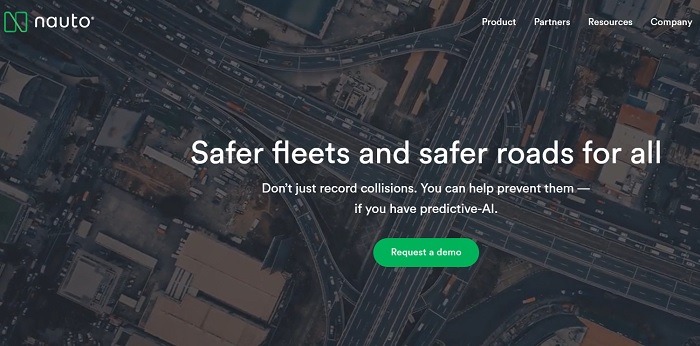
12. Aptiv
Aptiv is an Irish-American conglomerate, that started out as an automotive supplier. But today it is making full-fledged inroads into the autonomous space with several key acquisitions. One of these is a company called Motional, which has a deep industry experience, responsible for operating NuTonomy taxi trials in Singapore. Aptiv has also partnered with Uber, so any Uber self-driving taxis in future may have an Aptiv imprint on it.

13. Cruise
San Francisco-based Cruise is rapidly expanding its autonomous vehicles footprint all over California. It already allows people to sign up for driverless rides (although there’s a waitlist), with an aptly named “Driverless is here” slogan which sounds reassuring. They are also a full-stack AV developer as their solutions aim to target all microsegments including robotaxi rides, delivery, and passenger vehicles.
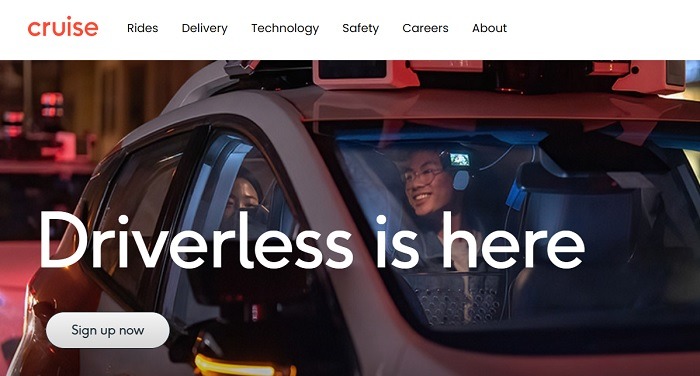
14. Nvidia
The only chipmaker in our list, Nvidia has been making forays into the driverless segment for many years now. It currently has a software-defined end-to-end platform with AI-based perception, mapping, planning, and driver monitoring. Many leading auto makers including Jaguar Land Rover have sought tie-ups with Nvidia because it has such a rich and phenomenal experience in the AI segment.
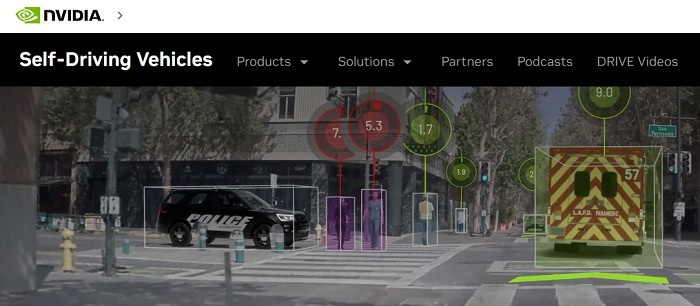
15. WeRide
WeRide is another big name Chinese autonomous vehicle company with a vast network of vehicles already being developed and tested worldwide. It’s currently present in 25 cities in different countries. Some of its current offerings include “Robosweeper” and “RoboVan” with vast applications in urban planning, and logistics. It has also received strategic funding from Bosch which now outsources many of its critical AV technologies to WeRide.

Frequently Asked Questions
When will autonomous driving be ready?
While many AV companies are in a race to launch their products in the market, with robotaxis and other solutions already making their mark in certain countries, autonomous driving will still take a few more years to become fully commercialized. This is because the large automakers are yet to see it as a profitable market.
Are autonomous vehicles safer than human drivers?
Autonomous vehicles are much safer than human drivers in some respects, such as having less room for errors due to anticipation mistakes. Also, they are much better designed to avoid collisions and crashes. However, AVs aren’t totally free of errors. Recently, there have been a few crash incidents involving Tesla, Zoox, and a few others.


